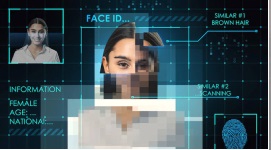Deep Fakes
News
Government advisory due to AI-generated deepfake video of Rashmika Mandanna raising concerns about deceptive digital impersonation.
What is a Deepfake?
A deepfake is a type of synthetic media created using artificial intelligence that replaces a person’s likeness or voice in images, videos, or audio recordings with that of someone else, often leading to highly convincing but manipulated content.
Challenges of Deepfakes and AI:
- Deepfakes, generated through AI tools, have raised concerns globally due to their potential to create deceptive content, like a recent fake video featuring actor Rashmika Mandanna.
- The rapid development of AI technology has made it easier to create convincing deepfakes, increasing their prevalence on social media.
- A recent deepfake video featuring Ukrainian President Volodymyr Zelenskyy highlighted the ease of creating and spreading such content, especially in the context of polarized politics.
Government’s Advisory on Misinformation and Deepfakes:
- The Indian government has issued an advisoryto social media intermediaries to tackle misinformation and deepfake content.
- Social media platforms are urged to exercise due diligence and make reasonable efforts to identify and combat the spread of such content.
- The Ministry of Electronics and Information Technologyhas emphasized that prompt action must be taken in accordance with the IT Rules 2021.
- Content flagged as misinformation or deepfakemust be removed within 36 hours of reporting.
- Failure to comply with IT Act and Rules could result in consequences as per Rule 7 of IT Rules 2021, possibly affecting the organization’s legal protections under Section 79(1) of the IT Act.
International Responses to Deepfake Threats:
- A global concern surrounding deepfakes led to the signing of the Bletchley Declaration, acknowledging the risks and the need for global action.
- Countries like the United States and India are exploring regulatory approaches to AI safety and security.
- Tech giants such as Alphabet, Meta, and OpenAIare taking steps to watermark AI-generated content for identification.
- Policymakers are balancing the need for regulation with fostering innovation to address concerns like privacy, discrimination, and intellectual property rights.




